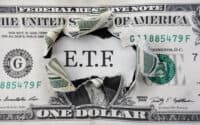 Strikes by union members across Spain represent another major obstacle to the future of austerity in the most financially troubled EU countries. The strikes can be added to the threat that the coalition government in Greece will be thrown out in the next elections and an Irish referendum on its bailout deal with the EU. The odds that austerity plans can hold become more unfavorable each day as political threats make changes of the leadership guards, particularly among southern European nations, more likely.
Strikes by union members across Spain represent another major obstacle to the future of austerity in the most financially troubled EU countries. The strikes can be added to the threat that the coalition government in Greece will be thrown out in the next elections and an Irish referendum on its bailout deal with the EU. The odds that austerity plans can hold become more unfavorable each day as political threats make changes of the leadership guards, particularly among southern European nations, more likely.
Concerns about sovereign debt, a regional recession and the odds that austerity will fail have driven bond yields paid by Spain and Portugal higher again. Time magazine ran an analysis of why Portugal may be the next Greece. Greece also may be the next Greece. A senior executive at S&P, Moritz Kraemer, head of sovereign ratings, said the nation may have to restructure its debt again. None of this bad news has been offset yet by the chance that EU leaders temporarily will set bailout mechanisms that would total $1.3 trillion.
The single most important detail that leaders in nations like Spain and Greece cannot control is that voters may ruin and undo agreements that traded austerity for bailout money. The reactions to lower pensions, lower pay and frayed social safety nets have led protesters to believe they have nothing to lose. This is either because they think the stronger nations in the region and the International Monetary Fund will aid their nations under almost any circumstances because the EU could unravel. Or these protesters think that countries that essentially go bankrupt will leave them no worse off financially. That position may be naive, but there is no solid proof it is not true.
Spanish Prime Minister Mariano Rajoy has been in office for only three months, about the same length of service as Mario Monti in Italy and Lucas Papademos of Greece. Each faces the possibility that the coalitions they have formed to get bailout funds could unravel quickly. The effects of that may make the size of the new $1.3 trillion bailout funds inadequate.
Douglas A. McIntyre
Thank you for reading! Have some feedback for us?
Contact the 24/7 Wall St. editorial team.



